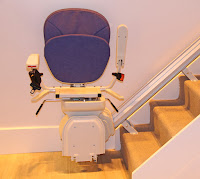ECDOL stands for Excellent Care, Decency, & Optimal Living. We aim to help seniors and their families find the most reliable and appropriate independent living, assisted living, and home healthcare options. Family and seniors can access an extensive directory to choose their state and find senior living options and by province in Canada. Our directory includes contact information for facilities in your region so you can quickly contact a senior care provider to see if they are the right fit for you or your aging loved one. We also include services provided, amenities, and housing features for each facility. We believe it is crucial to have reliable and accurate resources. Finding the right senior living and caregiving options can be challenging, and we want to help seniors and families make informed decisions.
ECDOL's Senior Resources
There is a range of resources available on the ECDOL website. Initially, the directory details some of the senior living and caregiving options available in each state. We describe the different types of senior living and healthcare options in the United States. Our helpful resources for aging adults provide valuable insight into what seniors may struggle with and offer practical tips and information. We want to support seniors and their families with up-to-date information to help them make informed decisions. The navigation is user-friendly; everything can be reached with one mouse click. The resources offer detailed information.
Senior Living Directory on ECDOL
The senior living directory gives a brief introduction for each state. It also lists different independent living and assisted living communities in the state. Each listing provides information on the types of services provided, the amenities available, and the different housing options. When using the directory, it’s a good idea to have an idea of what state would be considered or a city or community within the state. It’s also ideal to know what type of care options are needed and begin contacting facilities. There are numbers listed on the directory, along with services, amenities, and housing features. All of this information helps to make an informed decision. Personalizing search options like this helps families find the right options based on location, amenities, and care needs.
Highlighted Resource: Seniors Guide to Fentanyl
Our Seniors Guide to Fentanyl is a printable three-fold pamphlet that offers an understanding of fentanyl, its threat, and how to have conversations with adult children and grandchildren. The fentanyl epidemic has shown no signs of slowing down, and it has impacted every age demographic. As the population ages, an increasing number of older adults will be affected by problematic opioid use and opioid use disorders. Studies have shown that substance use among older adults is a concern that is often under diagnosed. The prevalence of opioid use disorders among older adults tripled from 2013 to 2018. While the rates of diagnosed opioid use disorders are relatively small among older adults, exposure is not uncommon. The Seniors Guide to Fentanyl aims to provide valuable information, tips, and resources to help seniors and their families. This includes tips for recognizing the signs of fentanyl use, having conversations with grandchildren, and how to speak to adult children about fentanyl.
Conclusion
Overall, ECDOL wants to empower seniors with information they can use to make informed decisions. We want to help families and their older loved ones with accurate and current information they can use to find the very best senior living and caregiving options. We want to encourage everyone who visits the website to use the directory, explore the resources, and read the information. We strive to keep information current and examine what problems impact seniors. Educational information plays a vital role in supporting the well-being of anyone. We believe it can be particularly valuable for seniors and their families. It’s important for anyone who visits this website to come to a point where they can make informed decisions that benefit themselves and their families.








